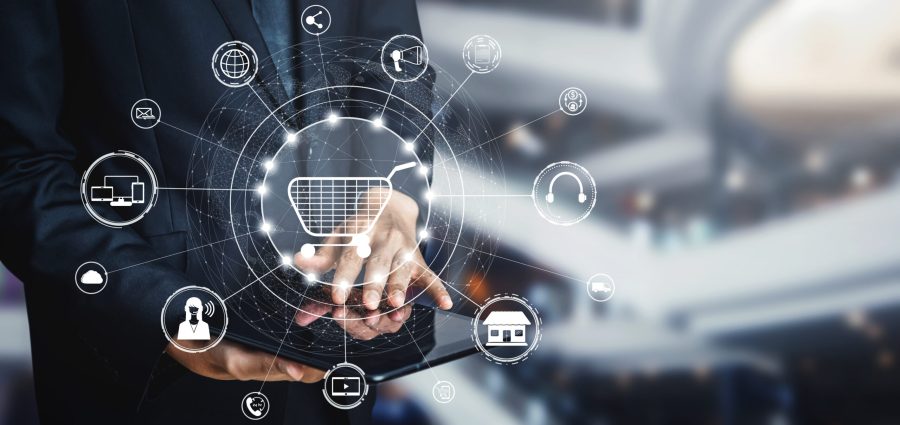A few weeks ago, my friend Scott called me, frantic. The first words out of his mouth when I picked up the phone were, “Benj, I hate distributors.”
As a bit of background, Scott started a company that has a solution to break down plastic waste faster than current methods.
In the past few months, Scott has built a team of over 30 professionals. But, to construct this game-changing protein, Scott needs high-end lab equipment, consumables like pipettes and lots of Ph.D.s.
Although distributors can’t help with the Ph.D. side, they can help him get the products and machines he needs to run his lab. In fact, over the last few months, Scott has spent more than $2 million with 35 distributors to get his lab up and running.
But the purchasing process hasn’t always gone as smoothly as he would have liked. His frustration hit the tipping point, which spurred him to call me and vent.
Scott has been trapped behind his desk trying to get the products he needs from his suppliers. Every time he interacts with a new sales rep or tries to buy from a different channel, he must start over. As a result, he continually runs out of consumables. He has also missed important components needed to operate his equipment.
For instance, Scott ordered an expensive centrifuge, only to realize he didn’t have the proper inserts to run the equipment. It sat idle for a week while his team waited for the inserts to arrive. If the sales rep he was working with had realized that the product needed additional inserts to function and offered to add them to his original order, they could have avoided this costly delay.
Scott has struggled to get what he needs because, at each interaction with a distributor, he must start from square one. There hasn’t been an omnichannel experience to help sales reps see what he ordered in the past, and no channel has a complete picture of what he’s looking for. Plus, Scott has to spend extra time researching because sales reps don’t make suggestions or product recommendations.
These challenges have made sourcing products and equipment for his lab a complete headache. Unfortunately, it’s not just Scott who deals with these problems – all B2B buyers have had the same experience, and we need to do something about it.
The Distribution Problem
Here’s the truth: People like Scott want to focus on the work they’ve dedicated their lives to. They want to build planes, revolutionize healthcare, install security systems to keep people safe, build homes and invent things. They want to make an impact – not spend all day on the phone trying to get the products they need.
When suppliers don’t make proactive recommendations or can’t access a customer’s information from different channels, the buying process becomes more challenging. If you can’t make your customer’s shopping journey as streamlined as possible, they’ll get frustrated and spend more with your competitor.
Buyers like Scott want an easy, personalized buying experience. They never want to run out of what they need. They don’t want to do their own research or deal with unnecessary downtime. They want the best buying experience distribution offers and are willing to pay for it.
Most distributors aren’t set up to offer this kind of seamless customer journey. Distributors are experts at getting products to the right place but not optimizing the buying experience — yet. Selling hundreds of thousands of SKUs across multiple channels doesn’t simplify things, either.
For distributors to step up to the plate and offer their customers an outstanding buying experience, they need AI-powered omnichannel capabilities.
What is Omnichannel?
Omnichannel refers to the connection of all sales channels, platforms and departments. Businesses with omnichannel capabilities unify their data in a central location, such as a data lake, where their systems can access information.
For example, with an omnichannel environment, your field sales can see what their customers purchased online, your customer service reps can look into emails sent to inside sales and your financial department can view open support tickets and refund requests.
This means that customers will have the same experience no matter where or when they interact with you. Omnichannel provides a seamless customer journey across channels, so your customers don’t have to bounce from department to department trying to place an order or ask a question. Instead, sales reps will have the data they need to solve problems and help customers find what they need.
Take Scott, for example; he had to start over every time he interacted with a new sales rep or tried to buy something through a different channel. The people he spoke to had no idea how to view his previously purchased items and couldn’t access emails he had sent to the company. Scott was dealing with a classic case of “the blind leading the blind,” and it heightened his frustration.
Your customers shouldn’t have to deal with the same issues Scott dealt with. To give your buyers a truly seamless experience, you need to funnel data from every channel to the same location and find a system that can process what customers are doing in other channels.
Distributors Can Make the Most of Omnichannel Data by Using AI
AI technology cuts through the complexity distributors face when interacting with customers to power a better experience amid rising customer expectations. AI-based tools enable price optimization, deliver revenue growth, minimize the cost to serve, offers personalized recommendations and more.
Distributors use AI to increase efficiencies and performance throughout the buyer journey. From the supply chain to customer service, AI-based tools recognize patterns in data to provide insights about customer preferences and needs to optimize omnichannel data for distributors.
Many B2B buyers research products online first, but then call up a sales rep to make the order. Distributors who use AI have real-time insight into each customer’s journey, order history and other factors such as at-risk or returned inventory. Instead of searching through thousands of SKUs trying to determine what products to pitch, AI identifies what products to recommend improving the customer experience and maximizing fulfillment for the distributor.
Instead of searching through thousands of SKUs trying to determine what products to pitch, AI provides personalized recommendations based on each customer’s order history and other factors.
AI also suggests add-on products that other buyers like them have purchased. For example, AI would have recommended inserts when Scott placed his order for the centrifuge. This proactive approach would have prevented the frustrating – and costly — delay Scott experienced.
Through semantic search of product catalogs, AI helps reps answer questions and provide customers with the necessary information to create a stellar buying experience. AI brings the knowledge and expertise of your best sellers to every channel, which ultimately helps people like Scott find products more quickly so they can dedicate more time to their work.
AI also allows distributors to create the demand needed to win over suppliers. With personalized product recommendations, AI informs buyers about products they might have missed due to the depth of the catalog. With an omnichannel experience, information about each customer’s preferences, buying behaviors and re-order needs is always accessible, so opportunities aren’t lost due to siloed information. This translates into giving customers what they need, creating demand and strengthening the relationship between distributors and their suppliers.
To keep customers and suppliers happy, distributors must be aware of their customer needs and provide a personalized experience no matter what channel they choose to interact with you. Sales teams can’t know everything about every customer; that’s why AI is critical to delivering this new kind of customer experience.
Personalization is Key to Distributor Success
According to McKinsey & Company, companies that personalized sales and marketing were 60% more likely to grow market share in 2021. Additionally, 72% of B2B buyers said they would actively look for a new supplier if their current one doesn’t offer a consistent customer experience across all channels.
McKinsey survey respondents from the same study said that omnichannel capabilities were nearly as important to them as product availability, with 74% of buyers willing to switch suppliers because of online availability.
Omnichannel isn’t about technology but about providing an unforgettable customer journey through personalization. We must go above and beyond to make shopping a productive and positive experience for our buyers with omnichannel personalization. Otherwise, valuable customers like Scott will take their business elsewhere and find distributors who can provide the shopping experience they deserve.
If Scott’s distributors had used AI for omnichannel personalization, his experience securing the machines and products to run his lab, including all the ancillary items he didn’t know he needed wouldn’t have been irritating. He would be free to focus on what he does best, not tied up behind his computer trying to source products. And, he would be a distributors’ champion rather than be disappointed by his experience.
Related Posts
-
Michael Hall was promoted to territory sales manager, and Lisa Percival was promoted to inside…
-
The Michigan-based company says it increased 1Q net sales by 8.5%, with record sales in…
-
First-quarter 2022 sales were $1.46 billion, a 20% increase compared to the first quarter of…






